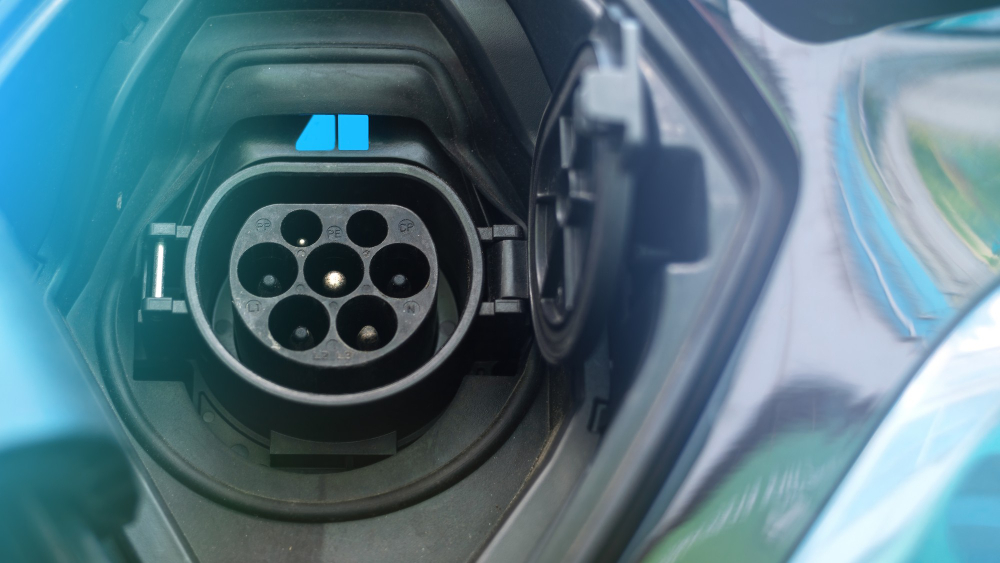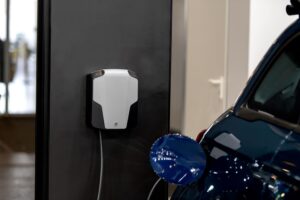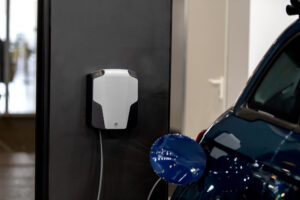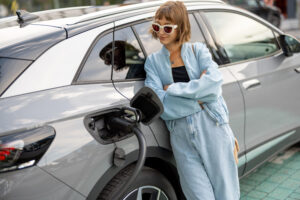With the growing popularity of electric vehicles (EVs), owners need to gain a comprehensive understanding of how to charge an electric car at home efficiently.
This knowledge not only ensures convenience but also plays a vital role in reducing carbon emissions and fostering sustainability.
This is why we will delve into the various methods and options available for charging an electric car at home, equipping you with the necessary information to power up your vehicle seamlessly.
Join us on this journey as we explore the future of electric cars and unlock the potential of convenient home charging.
How to Charge an Electric Car at Home
Here are some ways to charge an electric car at home so that you can efficiently and conveniently power up your vehicle:
Installing a dedicated EV charger
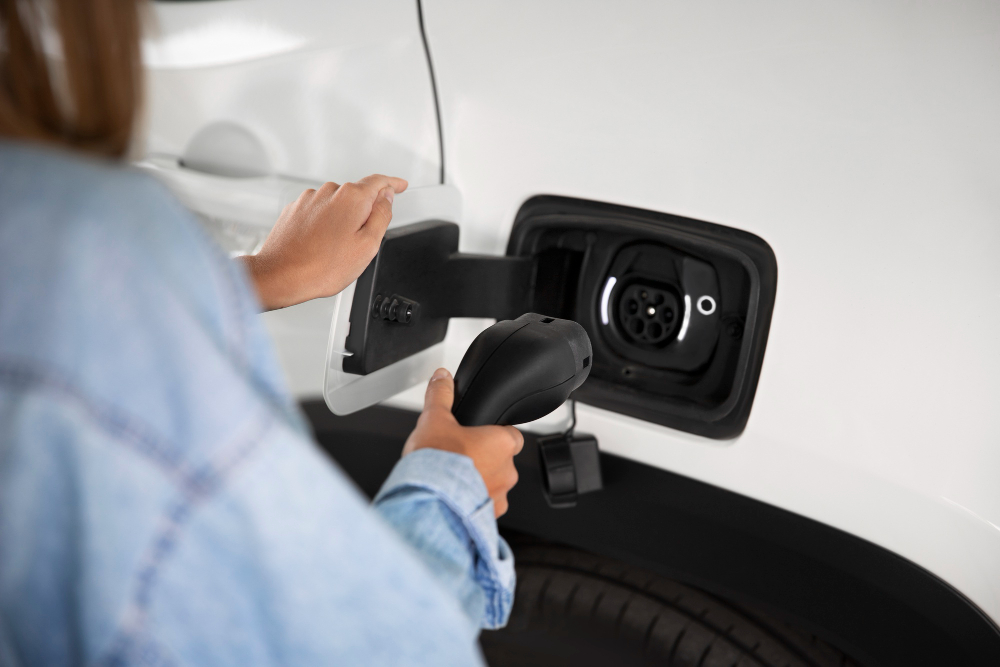
Installing an EV charger station at home is widely regarded as one of the most efficient and highly recommended approaches for charging an electric vehicle.
These dedicated charging stations are designed for EVs and offer faster charging times. To install such a station, it is advisable to seek the expertise of a licensed electrician who can evaluate your electrical setup and carry out any essential enhancements to meet the power demands of the charger.
By opting for a dedicated EV charging station, you can benefit from accelerated charging speeds and a more convenient overall charging experience.
Charging from a wall socket
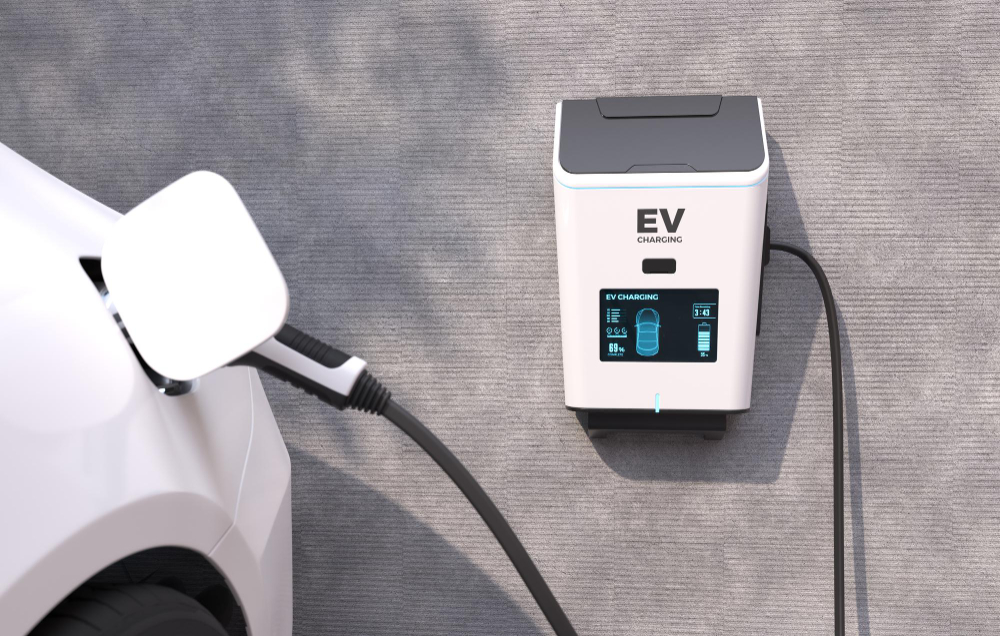
Level 1 EV charging
An alternative choice in how to charge an electric car at home is a standard wall socket, often called Level 1 EV charging. While this method offers the slowest charging rate, it can still prove beneficial for charging your car overnight or during periods when you have ample time available.
To charge your electric vehicle using a wall socket, you will require a suitable charging cable compatible with your car.
It’s essential to bear in mind that this approach may not be suitable for frequent long-distance driving, as it takes a longer duration to charge your vehicle compared to other methods fully.
Hence, using dedicated home EV chargers is advised for more efficient and convenient overnight charging.
Charging from a home wall box
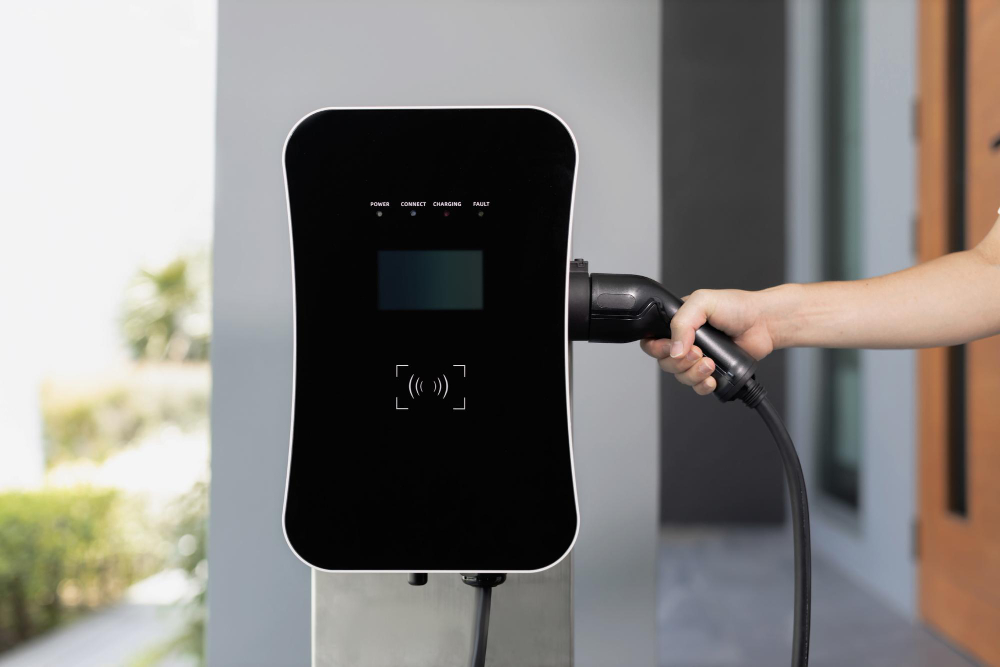
Level 2 EV charging
To enhance the speed and efficiency of charging your electric car at home, consider choosing a home wall box, commonly known as Level 2 EV charging.
Home wall boxes offer elevated charging speeds, enabling you to replenish your EV battery in a significantly shorter duration. These convenient home charging solutions are typically installed by licensed electricians and necessitate a dedicated power supply to function optimally.
By opting for a home wall box, you can enjoy the benefits of faster and more efficient charging for your electric vehicle.
Level 2 single-phase
Level 2 single-phase charging refers to a type of electric vehicle charging operating at a higher power level than Level 1 charging. Level 2 charging typically utilizes a single-phase power supply, which is commonly available in residential and commercial settings.
With Level 2 single-phase charging, an EV can be charged at a faster rate compared to Level 1 charging. Level 2 charging stations often require a dedicated charging unit or wall box to provide the necessary power supply and charging capabilities.
Frequently Asked Questions
How long does EV charging take at home?
The duration it takes to charge an electric car at home can vary depending on various factors, including the chosen charging method, charger capacity, and the vehicle’s battery size.
Considering these aspects is crucial when planning your electric car charging routine to ensure that your vehicle is adequately charged and ready for use when needed.
How much does it cost to charge an electric car at home?
The expenses associated with charging battery electric vehicles (BEVs) at home depend on various factors, including the local electricity rates, vehicle efficiency, and chosen charging method.
On average, charging an electric car at home proves significantly more economical compared to refueling a conventional gasoline vehicle.
To estimate the charging cost, you can consult your electricity bill to determine the rate per kilowatt-hour (kWh) and multiply it by the kWh consumed during the charging process.
What types of EV chargers are suitable for the home?
When exploring EV chargers for home use, a range of options awaits. Level 1 chargers, which can be conveniently plugged into a standard wall socket, are suitable for occasional or limited charging needs. However, a Level 2 home wall box charger is highly recommended for swifter and more efficient charging.
If you’re interested in acquiring second-hand electric vehicles for sale in Kiewa, consult reputable sources and sellers like us.
Conclusion
Charging an electric car at home offers unparalleled convenience and accessibility for EV owners. Whether you opt for a dedicated EV charger or a home wall box, you can reap the benefits of faster charging speeds and a seamless charging experience.
By harnessing the knowledge gained from this comprehensive guide on how to charge an electric car at home, you are equipped to efficiently power up your vehicle while contributing to a greener and more sustainable future.
For those interested in acquiring second-hand electric vehicles for sale in Stanley, explore reputable sources and local sellers like us to find the perfect EV for your eco-friendly journey!

